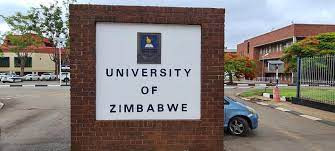
INTERVIEW : Brenna Matendere
The Gender Commission of Zimbabwe (GCZ) is a constitutional body mandated to ensure gender equality in the country by investigating possible violation of rights relating to gender. NewsDay (ND) senior reporter Brenna Matendere caught up with GCZ chief executive officer Virginia Muwanigwa (VM), to get her views on challenges encountered and milestones covered by the commission since its inception. Below are excerpts of the interview.
ND: What’s the mandate of the Gender Commission of Zimbabwe?
VM: The commission evolved out of an initial process that advocated for a women’s council, a national body whose key mandate was to work with all stakeholders to ensure that gender equality and women’s rights were upheld.
This work would transcend political, economic and socio-cultural spheres informed by the priorities set out in the national gender policy — constitutional, legal and parliamentary affairs; politics and decision-making; economic resources and employment; education and training; health; gender-based violence; the environment; and media, arts and culture.
Fortunately, the outcome was a commission, whose mandate is derived from Chapter 12 of the 2013 Constitution.
Its objectives are shared with those of the other four commissions established to ensure constitutionalism. Section 246 of the Constitution of Zimbabwe outlines our functions that include monitoring gender equality to ensure parity as provided for in the Constitution as well as investigating possible violations of rights relating to gender.
ND: To date, what can you say are the challenges faced by the GCZ and successes scored under the circumstances?
- Chamisa under fire over US$120K donation
- Mavhunga puts DeMbare into Chibuku quarterfinals
- Pension funds bet on Cabora Bassa oilfields
- Councils defy govt fire tender directive
Keep Reading
VM: As an institution whose focus is to ensure gender equality and non-discrimination as per the Constitution, the key challenge is that of deconstructing the social norms built upon beliefs, values, attitudes and standards that largely undermine women’s rights, especially in personal and family matters.
Culture and or religion, while mostly advanced, is negated by the extent to which as Zimbabweans we have transformed some of our traditional social norms to embrace new beliefs.
Recognising that social change is not an event but a process. We, however, draw strength from the fact that since 2013, our Constitution outlaws discrimination in favour of gender equality.
So a lot of our efforts have been to work with our stakeholders to publicise the Constitution as information and knowledge building. The thinking is that if political will exists, the knowledge will then enable a revisiting of beliefs and practices not just at individual level but within institutions. Culturally, the awareness raised has resulted in some gate-keepers, the traditional chiefs and some religious leaders being partners in spreading the message for transformation towards gender equality and non-discrimination.
Key success has been to maintain pressure on public and private institutions, in line with section 2 of the Constitution, which emphasises that it is the supreme law of the land, binding on all persons and State institutions.
ND: Since March when the lockdown was imposed to reduce cases of COVID-19, how have cases of gender-based violence been like?
VM: We understand from our own experience and also from our partners, frontline responders, that there has been an upward spike in gender-based violence, the majority targets being women and girls while men are the main perpetrators. There have, however, been some cases where men are targets and women are perpetrators.
GBV is a prevailing phenomenon and the pandemic has just increased in scale, while amplifying the triggers such as forced confinement in the family and household as one of the protection measures against infection and spread of the virus; increased fear and uncertainty due to the health implications; loss of livelihoods and reduced access to income leading to conflicts; limited mobility seen by some as an advantage as survivors cannot easily remove themselves in search of either mediation or justice.
Unfortunately, violence as a way of resolving conflicts only escalates the initial problems. So part of our work has been to speak against GBV and work with our partners in government, civic society, churches and the media, to ensure prevention and protection for survivors.
ND: In May, there were reports of female opposition activists, among them MDC Alliance MP Joanah Mamombe who were allegedly abducted and tortured. GCZ pledged to investigate the issue. What did you find?
VM: We cannot comment on the case as it is before the courts and we will share our position when we finalise our own process based on the Zimbabwe Gender Commission Act. ND: What else is the GCZ investigating?
VM: In 2019, the commission received 60 complaints of alleged violations to rights relating to gender. The nature of the cases was as follows: 12 cases of sexual harassment; five cases of gender-based discrimination; 31 cases of access to birth registration; and 12 general matters involving property rights, maintenance, domestic violence, and criminal matters.
The commission conducted hearings for four different cases. Key among these were the alleged sexual harassment and abuse at the Department of Immigration and National Aids Council.
Other activities carried out under legal and investigations include, among others: field investigations and community outreaches; referrals to relevant authorities including the courts, civic society organisations and police; law and policy reform; legal services.
We have recently carried out a gender assessment of some quarantine centres and will shortly share our findings. Several other ongoing cases are at different stages of respective investigations.
ND: What is your view on calls for extension of the proportional representation MPs arrangement which expires in 2023?
VM: As a commission, we are guided by the constitutional targets and in section 56, the Bill of Rights upholds gender equality and non-discrimination. Several other sections also support gender balance in social, economic and political spaces, rights of women. Our preferred result is, therefore, equal representation of women not just in Parliament, but in councils and in all other decision-making structures. While we acknowledge that the reserved seats did increase the numbers of women, the figure is so nominal and the extension, without ensuring that political parties, particularly review their own constitutions, structures, processes and systems to ensure gender equality in outcomes, just provides a false sense of achievement while not meeting the constitutional parity.
GCZ, therefore, proposes proportional representation as in the Senate which has delivered near parity at 48% representation of women. Parties should submit closed nomination lists which alternate women and men for consideration after the electorate has voted for parties rather than individuals.
ND: Do you think the PR MPs were effective in Parliament?
VM: Researches by several organisations have shown that the PR MPs were effective as far as representing women’s issues was concerned as most women-specific motions were moved by them.
However, it has to be noted that the system is rather unfair to them as they have huge mandates, superintending larger geographical spaces without the requisite authority or resources.
ND: How best can Zimbabwe achieve gender balance and equity?
VM: Zimbabwe has already guaranteed gender equality in the Constitution; what remains is to ensure that the principle is realised in institutions and among the people of Zimbabwe.
Aligning with the Constitution requires not just the frameworks but ensuring that at a personal level, no one is viewed as a second-class citizen, that the institutions, private and public whose role is to deliver goods and services, uphold the principles in their own organisational policies and programmes and that harmful cultural and religious practices are jettisoned without delay in line with the Constitution.
ND: Going forward, what work can the nation expect to see being done by the GCZ?
VM: GCZ priorities include continuing advocacy for the implementation of the Constitution; increasing women’s representation in political leadership and decision making; addressing gender dimensions in health especially in view of the COVID-19 pandemic; increasing recognition of women’s right to economic resources and empowerment; addressing gender issues in the environment; deconstructing socio-cultural and religious norms that militate against gender equality.











